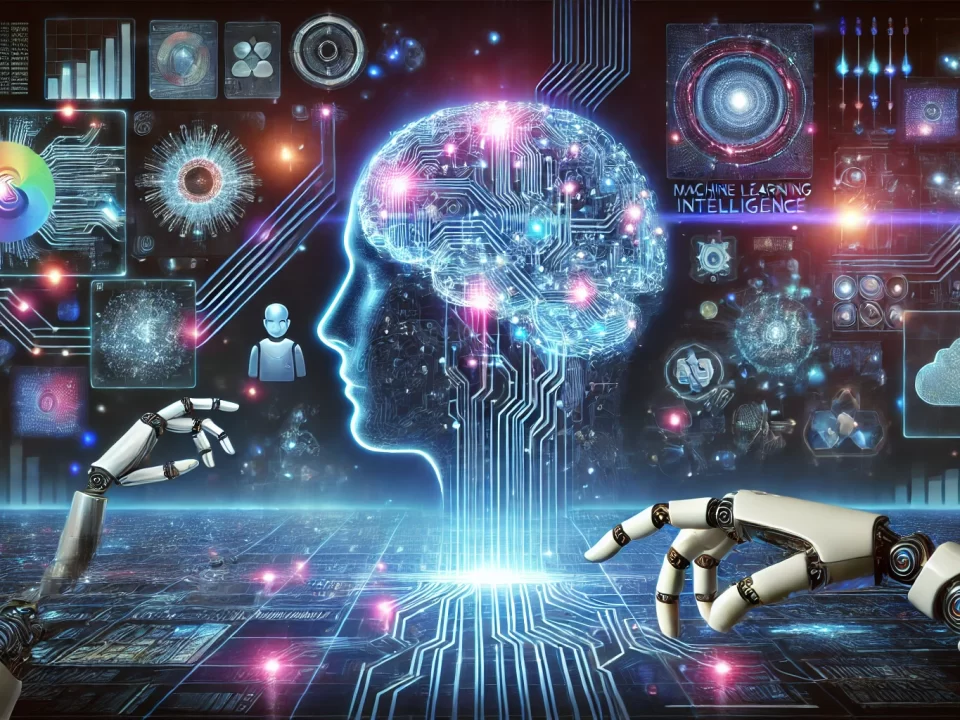Emerging Technology Roles
The adoption of AI across industries has created a surge in demand for specialized roles that cater to the development, deployment, and management of AI technologies. These roles span technical, managerial, and strategic domains, reflecting the multifaceted nature of AI integration. Below are some of the emerging technology roles driven by the widespread adoption of AI:
1. AI/ML Engineer
- Role Overview: AI/ML engineers design, develop, and implement machine learning models and AI algorithms. They work on data preparation, model training, and deploying AI systems for real-world applications.
- Skills Required: Proficiency in programming languages like Python or R, knowledge of frameworks such as TensorFlow, PyTorch, or Scikit-learn, and expertise in data engineering and mathematics.
- Industries Hiring: Healthcare, finance, retail, manufacturing, and tech companies.
2. Data Scientist
- Role Overview: Data scientists analyze large datasets to extract actionable insights. They often work on developing predictive models, trend analysis, and anomaly detection using AI.
- Skills Required: Expertise in statistics, data visualization tools, machine learning, and programming languages.
- Industries Hiring: E-commerce, marketing, government, energy, and banking.
3. AI Ethicist
- Role Overview: AI ethicists ensure that AI systems are developed and used responsibly, avoiding ethical pitfalls such as bias, discrimination, or misuse of data.
- Skills Required: A combination of technical knowledge in AI and expertise in ethics, law, and policy.
- Industries Hiring: Tech companies, legal firms, healthcare, and NGOs focusing on AI governance.
4. Robotics Engineer
- Role Overview: Robotics engineers design and develop AI-powered robots for applications in industries such as manufacturing, logistics, and healthcare. Their work often integrates hardware engineering with machine learning and computer vision.
- Skills Required: Knowledge of robotics frameworks, embedded systems, and AI algorithms.
- Industries Hiring: Automotive, aerospace, healthcare, and agriculture.
5. Natural Language Processing (NLP) Specialist
- Role Overview: NLP specialists develop algorithms that enable machines to understand, interpret, and generate human language. Applications include chatbots, virtual assistants, and language translation.
- Skills Required: Expertise in linguistics, computational linguistics, and NLP tools like SpaCy or BERT.
- Industries Hiring: Customer service, e-commerce, legal tech, and content creation.
6. AI Product Manager
- Role Overview: AI product managers oversee the development and deployment of AI-powered products. They bridge the gap between technical teams and business stakeholders.
- Skills Required: Understanding of AI/ML concepts, strong project management skills, and business acumen.
- Industries Hiring: Tech startups, enterprise software companies, and consultancy firms.
7. Computer Vision Engineer
- Role Overview: These engineers specialize in enabling machines to "see" and interpret visual data. Applications include facial recognition, autonomous vehicles, and quality control in manufacturing.
- Skills Required: Expertise in computer vision libraries like OpenCV, knowledge of image processing, and neural networks.
- Industries Hiring: Automotive, surveillance, healthcare imaging, and retail.
8. AI DevOps Engineer
- Role Overview: AI DevOps engineers focus on integrating AI solutions into existing IT infrastructure. They manage the deployment, scalability, and optimization of AI models in production environments.
- Skills Required: Proficiency in cloud platforms, containerization tools like Kubernetes, and ML operations (MLOps).
- Industries Hiring: Cloud computing, software-as-a-service (SaaS), and telecommunications.
9. AI Trainer
- Role Overview: AI trainers work on curating datasets and training AI systems to perform specific tasks. They are often involved in fine-tuning AI models for accuracy and relevancy.
- Skills Required: Data labeling, annotation tools, and domain-specific expertise.
- Industries Hiring: Retail, customer service, healthcare, and tech.
10. Cybersecurity Specialist (AI-Focused)
- Role Overview: These specialists leverage AI to detect and prevent cyber threats. They work on threat intelligence, anomaly detection, and building AI-based defense mechanisms.
- Skills Required: Knowledge of cybersecurity frameworks, AI-driven threat analysis tools, and programming.
- Industries Hiring: Banking, government, and enterprise IT.
11. AI Hardware Engineer
- Role Overview: AI hardware engineers design and develop specialized hardware, such as GPUs, TPUs, and neuromorphic chips, optimized for AI workloads.
- Skills Required: Expertise in hardware design, FPGA programming, and knowledge of AI/ML frameworks.
- Industries Hiring: Semiconductor companies, cloud service providers, and AI research labs.
12. Digital Twin Specialist
- Role Overview: Digital twin specialists create virtual replicas of physical systems to simulate scenarios and improve decision-making. AI is often integrated into these models for predictive analytics.
- Skills Required: Simulation software, IoT integration, and AI modeling.
- Industries Hiring: Manufacturing, energy, and urban planning.
13. AI Consultant
- Role Overview: AI consultants advise businesses on implementing AI solutions to solve specific challenges, streamline operations, or improve customer experiences.
- Skills Required: Strong knowledge of AI applications, business strategy, and change management.
- Industries Hiring: Consulting firms, enterprise businesses, and startups.
14. Autonomous Systems Engineer
- Role Overview: These engineers develop AI systems for autonomous vehicles, drones, and machinery, enabling them to operate with minimal human intervention.
- Skills Required: Knowledge of control systems, AI algorithms, and sensor integration.
- Industries Hiring: Automotive, defense, and logistics.
15. AI Research Scientist
- Role Overview: Research scientists work on advancing the field of AI by developing new algorithms, exploring innovative applications, and publishing academic research.
- Skills Required: Expertise in AI/ML theory, mathematical modeling, and programming.
- Industries Hiring: Academic institutions, research labs, and tech giants.
16. AI-Powered Customer Experience Designer
- Role Overview: These professionals design AI-driven customer engagement strategies using chatbots, recommendation systems, and sentiment analysis tools.
- Skills Required: Customer journey mapping, UX design, and AI integration.
- Industries Hiring: Retail, travel, and entertainment.
Conclusion
The proliferation of AI across industries has sparked a wave of new career opportunities, many of which demand a blend of technical expertise and domain-specific knowledge. Professionals seeking to thrive in these roles must stay updated on AI advancements, continuously upskill, and embrace interdisciplinary learning. As AI continues to shape the future of work, the demand for skilled talent in these emerging roles will only grow, making this an exciting time to explore a career in AI-driven industries.



